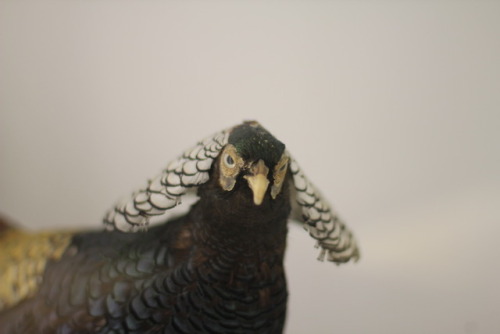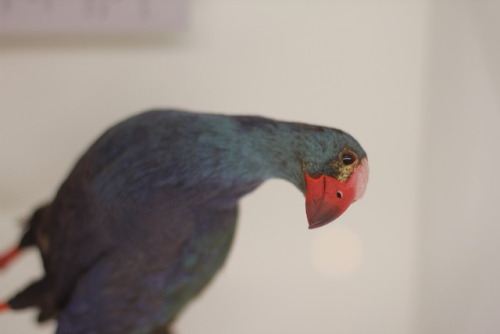A Little More Help For Focusing-on Beginers: In Terms Of Cognitive Demand, It Is More Difficult To Focusing
A little more help for focusing-on beginers: In terms of cognitive demand, it is more difficult to focusing on your ongoing task when you have a long to-do list than when only a few more tasks left. So I recommend you to try making schedule with less than 5 tasks a day. It will be much easier to organize work of different fields or of different shades of cognitive demand.
How focusing (aka. not multi-tasking) changed my study life
I had heard it occasionally - that multi-tasking was actually not good for the quality of whatever task I was doing. It made sense, but I loved mult-tasking so much. It gave me the illusion of productivity.
Until I actually tried focusing for a while, did I realise how much I was actually losing by multi-tasking - educationally and emotionally. Scrolling through tumblr during boring parts of a lecture seemed fine, since there were notes and it probably wouldn’t be tested in such depth anyway. Eating, while scrolling through social media, while watching a tv show, while messaging someone on facebook seemed ‘productive’.
It turns out it was the opposite. It may seem fine, and at times it may actually be okay, but what matters is the principle. Dedicating your whole being to one task, focusing on it, produces much better results. It’s a quality over quantity thing. It also helped to calm me down emotionally - I used to always feel rushed, like there was so many things to do but not enough time to do them. Focusing on one task at a time - though it was hard at first - helped slow me down because I did everything properly, and didn’t have the feeling like I needed to go back and do things over again.
Focusing on one thing wholly is also a form of practising mindfulness. Mindfulness ‘meditation’ isn’t something that requires you to sit down and meditate - it can be applied to our daily life.
Since I started practising this mindful skill of focus, I’ve become much calmer, it’s been so much easier to stay on top of my work load and meet deadlines, I don’t feel rushed, I don’t feel unprepared or unorganised, and I do more quality work than when I used to multi-task.
There are times for multi-tasking and times for focus. Find the right balance and enjoy the task in front of you.
More Posts from Evisno and Others

Saturn’s hexagon is a hexagonal cloud pattern that has persisted at the North Pole of Saturn since its discovery in 1981. At the time, Cassini was only able to take infrared photographs of the phenomenon until it passed into sunlight in 2009, at which point amateur photographers managed to be able to photograph it from Earth.
The structure is roughly 20,000 miles (32,000 km) wide, which is larger than Earth; and thermal images show that it reaches roughly 60 miles (100 km) down into Saturn’s interior.
Read an explanation of how Saturn’s hexagon works here: [x]










I visited Nantes’ Natural History Museum.






Theories about the Origins of Space and Time. 1. Gravity as Thermodynamics Entropic gravity is a theory in modern physics that describes gravity as an entropic force - not a fundamental interaction mediated by a quantum field theory and a gauge particle, but a consequence of physical systems’ tendency to increase their entropy. 2. Loop Quantum Gravity According to Einstein, gravity is not a force – it is a property of space-time itself. Loop quantum gravity is an attempt to develop a quantum theory of gravity based directly on Einstein’s geometrical formulation. The main output of the theory is a physical picture of space where space is granular. More precisely, space can be viewed as an extremely fine fabric or network “woven” of finite loops. These networks of loops are called spin networks. The evolution of a spin network over time is called a spin foam. The predicted size of this structure is the Planck length, which is approximately 10−35 meters. According to the theory, there is no meaning to distance at scales smaller than the Planck scale. Therefore, LQG predicts that not just matter, but space itself, has an atomic structure. 3. Causal Sets Its founding principles are that spacetime is fundamentally discrete and that spacetime events are related by a partial order. The theory postulates that the building blocks of space-time are simple mathematical points that are connected by links, with each link pointing from past to future. Such a link is a bare-bones representation of causality, meaning that an earlier point can affect a later one, but not vice versa. The resulting network is like a growing tree that gradually builds up into space-time. 4. Causal Dynamical Triangulations The idea is to approximate the unknown fundamental constituents with tiny chunks of ordinary space-time caught up in a roiling sea of quantum fluctuations, and to follow how these chunks spontaneously glue themselves together into larger structures. The space-time building blocks were simple hyper-pyramids (four-dimensional counterparts to three-dimensional tetrahedrons) and the simulation’s gluing rules allowed them to combine freely. The result was a series of bizarre ‘universes’ that had far too many dimensions (or too few), and that folded back on themselves or broke into pieces. 5. Holography In this model, the three-dimensional interior of the universe contains strings and black holes governed only by gravity, whereas its two-dimensional boundary contains elementary particles and fields that obey ordinary quantum laws without gravity. Hypothetical residents of the three-dimensional space would never see this boundary, because it would be infinitely far away. But that does not affect the mathematics: anything happening in the three-dimensional universe can be described equally well by equations in the two-dimensional boundary, and vice versa.
NASA logo. April 27, 2015 As the saying goes, timing is everything. More so in 21st-century space exploration where navigating spacecraft precisely to far-flung destinations—say to Mars or even more distant Europa, a moon of Jupiter—is critical. NASA is making great strides...

Merging galaxies and droplets of starbirth
The Universe is filled with objects springing to life, evolving and dying explosive deaths. This new image from the NASA/ESA Hubble Space Telescope captures a snapshot of some of this cosmic movement. Embedded within the egg-shaped blue ring at the centre of the frame are two galaxies. These galaxies have been found to be merging into one and a “chain” of young stellar superclusters are seen winding around the galaxies’ nuclei.
At the centre of this image lie two elliptical galaxies, part of a galaxy cluster known as [HGO2008]SDSS J1531+3414, which have strayed into each other’s paths. While this region has been observed before, this new Hubble picture shows clearly for the first time that the pair are two separate objects. However, they will not be able to hold on to their separate identities much longer, as they are in the process of merging into one.
Finding two elliptical galaxies merging is rare, but it is even rarer to find a merger between ellipticals rich enough in gas to induce star formation. Galaxies in clusters are generally thought to have been deprived of their gaseous contents; a process that Hubble has recently seen in action. Yet, in this image, not only have two elliptical galaxies been caught merging but their newborn stellar population is also a rare breed.
The stellar infants — thought to be a result of the merger — are part of what is known as “beads on a string” star formation. This type of formation appears as a knotted rope of gaseous filaments with bright patches of new stars and the process stems from the same fundamental physics which causes rain to fall in droplets, rather than as a continuous column.
Nineteen compact clumps of young stars make up the length of this “string”, woven together with narrow filaments of hydrogen gas. The star formation spans 100,000 light years, which is about the size of our galaxy, the Milky Way. The strand is dwarfed, however, by the ancient, giant merging galaxies that it inhabits. They are about 330,000 light years across, nearly three times larger than our own galaxy. This is typical for galaxies at the centre of massive clusters, as they tend to be the largest galaxies in the Universe.
The electric blue arcs making up the spectacular egg-like shape framing these objects are a result of the galaxy cluster’s immense gravity. The gravity warps the space around it and creates bizarre patterns using light from more distant galaxies.
Image credit: NASA, ESA/Hubble and Grant Tremblay (European Southern Observatory)



Métaphore d’un voyage initiatique au coeur de l’oreille adapté aux enfants :
- traversée de l’onde aérienne en avion à l’intérieur du conduit auditif jusqu’à la membrane du tympan
- découverte de l’onde mécanique sur la chaîne des osselets en vue de la fenêtre ovale
- plongée de l’onde de pression dans la cochlée qui contient l’organe de l’audition relié au cerveau
Willst du immer weiter schweifen? Sieh, das Gute liegt so nah!
Do you want to roam further and further? Look, the good things are so close!
Johann Wolfgang von Goethe (1749 – 1832), German poet, dramatist, natural scientist, and statesman
(via thatswhywelovegermany)

Zeta Ophiuchus
A massive star plowing through the gas and dust floating in space. Zeta Oph is a bruiser, with 20 times the Sun’s mass. It’s an incredibly luminous star, blasting out light at a rate 80,000 times higher than the Sun! Even at its distance of 400 light years or so, it should be one of the brightest stars in the sky … yet it actually appears relatively dim to the eye.
Credit: NASA/Hubble

That’s Electrooculography!
The eye is a basically a dipole ( a separation of electric charges )
It was observed by Reymond in 1848 that the cornea of the eye is electrically positive relative to the back of the eye.This potential was surprisingly not dependent on the amount of light falling on the eye.

The cornea is the transparent front part of the eye
Dipoles and Eye Tracking
This means that as the eye moves from side to side, the dipole moves as well. To capture the movement of the dipole, one places two electrodes on both sides of the eye. ( like the one placed on this guy )

If the eye moves from the center position to the right, one of the electrodes becomes slightly positive and the other negative. This leads to a spike in the positive direction.

Source
And if the eye moves from the center position to the left, the polarity of the electrodes reverses. This leads to a spike in the negative direction.

That’s about it. That’s EOG for you all. I hope you guys enjoyed this post.
Have a great day!

Sources and Extras:
More about EOG
Gif source : The backyard brains
-
 suniah liked this · 3 years ago
suniah liked this · 3 years ago -
 amansyndai liked this · 4 years ago
amansyndai liked this · 4 years ago -
 lj-idk liked this · 4 years ago
lj-idk liked this · 4 years ago -
 lj-idk reblogged this · 4 years ago
lj-idk reblogged this · 4 years ago -
 becomingmyselfoncemore reblogged this · 4 years ago
becomingmyselfoncemore reblogged this · 4 years ago -
 teathinkerstumbl reblogged this · 5 years ago
teathinkerstumbl reblogged this · 5 years ago -
 eee-eee liked this · 5 years ago
eee-eee liked this · 5 years ago -
 urban-witchling liked this · 5 years ago
urban-witchling liked this · 5 years ago -
 youraveragedelulu liked this · 5 years ago
youraveragedelulu liked this · 5 years ago -
 felinenamedcat liked this · 5 years ago
felinenamedcat liked this · 5 years ago -
 warmpastelseason reblogged this · 5 years ago
warmpastelseason reblogged this · 5 years ago -
 welcometothetripsestra reblogged this · 5 years ago
welcometothetripsestra reblogged this · 5 years ago -
 chebean19 liked this · 5 years ago
chebean19 liked this · 5 years ago -
 daily-grace-8 liked this · 5 years ago
daily-grace-8 liked this · 5 years ago -
 666-discoinferno-999 reblogged this · 5 years ago
666-discoinferno-999 reblogged this · 5 years ago -
 nightowllllll liked this · 5 years ago
nightowllllll liked this · 5 years ago -
 antistae reblogged this · 5 years ago
antistae reblogged this · 5 years ago -
 lecholit liked this · 5 years ago
lecholit liked this · 5 years ago -
 devils-muse00 liked this · 5 years ago
devils-muse00 liked this · 5 years ago -
 lottiestudying liked this · 6 years ago
lottiestudying liked this · 6 years ago -
 love-lizzie reblogged this · 6 years ago
love-lizzie reblogged this · 6 years ago -
 schnaf reblogged this · 6 years ago
schnaf reblogged this · 6 years ago -
 saracorley liked this · 6 years ago
saracorley liked this · 6 years ago -
 dropout-studies reblogged this · 6 years ago
dropout-studies reblogged this · 6 years ago -
 alreadycursedbcawinchester liked this · 6 years ago
alreadycursedbcawinchester liked this · 6 years ago -
 thecongeriesofme liked this · 6 years ago
thecongeriesofme liked this · 6 years ago -
 eldritchdrakon liked this · 6 years ago
eldritchdrakon liked this · 6 years ago -
 coup-de-coeur reblogged this · 6 years ago
coup-de-coeur reblogged this · 6 years ago -
 anik-moon liked this · 6 years ago
anik-moon liked this · 6 years ago -
 babygirlpiratespride liked this · 6 years ago
babygirlpiratespride liked this · 6 years ago -
 asasight liked this · 6 years ago
asasight liked this · 6 years ago -
 nevertoofartowalk reblogged this · 6 years ago
nevertoofartowalk reblogged this · 6 years ago -
 nevertoofartowalk liked this · 6 years ago
nevertoofartowalk liked this · 6 years ago -
 screaming-caterpillar liked this · 6 years ago
screaming-caterpillar liked this · 6 years ago -
 blacks-phoenix reblogged this · 6 years ago
blacks-phoenix reblogged this · 6 years ago -
 languagement liked this · 6 years ago
languagement liked this · 6 years ago -
 anxious-moody-and-ready-to-party reblogged this · 6 years ago
anxious-moody-and-ready-to-party reblogged this · 6 years ago -
 nordic-piscean liked this · 6 years ago
nordic-piscean liked this · 6 years ago -
 mels-my-olympian liked this · 6 years ago
mels-my-olympian liked this · 6 years ago -
 believethatyouhaveit liked this · 6 years ago
believethatyouhaveit liked this · 6 years ago -
 lilahlordless reblogged this · 6 years ago
lilahlordless reblogged this · 6 years ago -
 oldhollywoodholla liked this · 6 years ago
oldhollywoodholla liked this · 6 years ago



